
I was flattered to be mentioned in the ‘2013 – a year in review’ post by John Adams of DadBlogUK. It’s always flattering to receive this sort of compliment from a fellow blogger, especially one has so much to contribute to debates about what it means to be a dad and parent today.
Another reason that I was pleased to have been mentioned in John’s post is that it helped me to decide what would blog about this week. This is what I am supposed to do as I have decided to participate in this ‘2013 – a year in review series’ (…if I’ve tagged you in this post, please feel free to follow suit or not as you see fit, I appreciate that you may have a whole series of other posts lined up for the next while):
1. In your post, be sure to link back and thank the blogger that previously tagged you
2. Answer the questions below and tag at least 5 other bloggers
3. Include the badge in your post
Right, here are my answers to the questions that the other bloggers who have participated in this chain of post have answered:

1. Your top 5 new favourite blogs to read in 2013
As I only started blogging in June of last year, I’ve gone for five blogs that were new to me even though they may have been up and running for a while:
– Stephen Greene’s Head of the Heard. Stephen is from England but lives in Brazil with his wife and son. His blog is full of fascinating insights on Brazillian life and culture as well as humour and reflections about bringing up their child bilingually. As a fellow bilingualparent, I find this last topic particularly interesting.
– Olga Mecking’s European Mama. Olga is another parent blogger who has moved from one country to another, being originally from Poland and now living in the Netherlands. On her blog, she discusses topics such as multilingualism, traditions and cultures around the world and also general issues to do with parenting.
– Dean Beaumont’s DaddyNatal. Dean is the founder of DaddyNatal, whose tag line is ‘practical, memorable and enjoyable antenatal education for men, by men’. He is also the first professional male antenatal educator in the UK. I first heard about him and his organisation after my mum mentioned that she heard him take part in a discussion on BBC Radio 4’s Women’s Hour. I love his upbeat focus on what it means to be a man and a dad, and this really struck a chord with me around the time when I was about to become a dad.
– Tom Briggs’s Diary of the Dad. Tom has a real knack when it comes to writing humorous posts about all sorts of things with which a lot of parents will identify. The anecdotes that he recounts about being a dad often have me chuckling away in front of my computer. He has also discussed various topical issues to do with parenting, children and families.
– Leanna Guillen Mora’s All Done Monkey. In addition to running a lively and fun blog where she discusses bilingual and bicultural parenting, Leanna is also one of the main people behind Multicultural Kid Blogs, a group of bloggers who are interesting in topics such as raising kids to be aware of a variety of different cultures and languages. This group is always coming up with fun projects to do with parenting such as online book clubs and is also full of articles about all sorts of different traditions and cultures around the world.

2. List your 5 most read blog posts of 2013
1. Being a Bilingual Parent. In this post, I talked about why my wife and I have decided to bring up our son bilingually using Welsh and English. We live in Wales and have found this to be quite a fun challenge as neither of us grew up speaking Welsh but we have both learnt the language since moving here.
2. It’s International Baby Wearing Week, so we went to Sling. My wife and I both enjoy carrying our sun about in a variety of different sorts of slings. We also live only a few miles from a small village called Sling. It only seemed right to go there to mark International Baby Wearing Week and take some photos of us with our son in a sling next to the Sling road sign. As well as this random silliness, this post contains some really interesting input from bloggers in different countries about attitudes to babywearing around the world.
3. Parenting clubs shouldn’t just be for mums. I wrote this piece due to my frustration at how the parenting clubs run by some big chains of shops in the UK seem to devote very little focus on the fact that dads are parents too and can play a positive role in the raising a family. I called for dads to be more visible in materials the ‘parenting’ materials produced by some such parenting clubs that focus almost exclusively on mums.
4. Baby ‘essentials’ – things that you’re told you need but could probably do without. In September of last year, a Saturday newspaper in the UK ran a feature entitled ‘The 50 best baby essentials’. I saw a lot of the items on the list as expensive luxury items that it is fairly easy to live without, so I wrote this post in response (…after counting to ten, sitting down and waiting for steam to stop coming out of my ears).
5. 6 things I’ve learned in 6 months as a parent. In this post, I took stock of what I had learned about parenting in the half year following the birth of our son. After writing this post, I really enjoyed hearing other parents let me know what they had quickly learned about parenting after their arrival of their children. I’m constantly learning all sorts of things about parenting as our son grows up and now do a post each month in which I reflect on the lighter side of being a parent. The most recent one is entitled 9 thoughts from my 9th as a parent.
3. Name one blog you wish you had found sooner
Scott Behson’s blog Fathers, Work and Family is one that I always love reading due to the way in which it combines being thought provoking, practical and highly engaging. Scott describes his blog as one that ‘is dedicated to supporting work-family balance for fathers’. So much of what he says strikes a real chord with me as I continue to try to do my best to balance work and family life. If you’ve read any of the posts that I’ve written on here about paternity leave, you’ll probably realise that this something that I see as a really important issue.

4. Your favourite blog post of 2013
If this means my favourite post from 2013 of those that I wrote here, I’d probably have to say that it’s one entitled What parenting and game shows have in common. It was quite a fun post to write, especially as the writing process involved watching YouTube clips of some of game shows such as Catchphrase, Going for Gold and Takeshi’s Castle that I used to love watching.
If I had to nominate the blog post that I most enjoyed reading as opposed to writing in 2013, it would have to be one entitled Dad, are we poor? from Aaron Gouveia’s blog Daddy Files. It provided a really poignant focus on striking a balance between earning money to support one’s family and spending time with one’s family.
5. What would you like to improve (if anything) on your blog next year?
I keep wanting to improve the layout and visual aspect of this blog. I think it’s improved a bit since I added the pictures under the title. I’m also trying to become a bit more focused when it comes to the types of posts I do. Each month, I plan to do a post about languages and cultures, one about what I’ve learned about parenting that month, a topical post and one or two others on whatever takes my fancy.
6. Name one blog you have a blog crush on
Hmm. Having a crush on a blog seems a bit of an odd notion to me, especially as I am now in my mid-thirties. I don’t think that there were anywhere near as many blogs around when I was of an age to have crushes.

7. How often do you post?
When I started this blog in June 2013, I was planning to post twice a week but this swiftly became once a week so as I had more time to read other parent blogs and also make sure that I was being a parent in addition to blogging about it.
8. Share your first post of 2013
Despite being just under 9 months old at the time, our son was kind enough to write a guest post entitled Baby’s first Christmas in which he gave his perspective on what December 25th 2013 was like. I am hoping that he will do occasional guest posts on my blog during 2014 and will be bribing him with blueberries and apple rings.
9. Name one thing you would be doing if you weren’t typing this post right now
I’d probably be reading a newspaper.
10. What have you loved the most about blogging this year?
I was really flattered to learn in the last few days of 2013 that I’d made it onto the shortlist for the Best Newcomer prize of the Love All Dads blog awards. As the result was annouced earlier this week, I can’t really tell you about it was revealed during 2014. Here’s a link if you want to find out though.
However, I don’t see blogging as being just an individual thing. I really loved being part of groups such as the Dad Bloggers Facebook group, Multicultural Kid Blogs, Kid Bloggers Network, DadzClub and LoveAllDads. It’s great that they exist and provide a supportive environment for parents and parent bloggers. There are so many great blogs out there and I am delighted to have discovered so many over the course of the last year.
What do you think of this post and what were your highlights of 2013? Please feel free to share your views in the comments section below or on the ‘Dad’s The Way I Like It’ pages on Facebook or Google+.
Remember that you can also subscribe to this blog by entering your e-mail address in the box on the right of the screen and also follow this blog via BlogLovin. There’s also now a Pinterest board for this blog as well, so please feel free to pin this post if you’ve enjoyed reading it




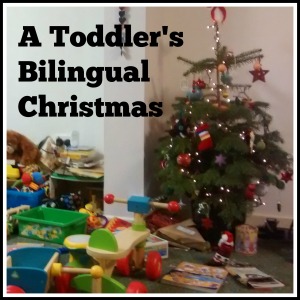
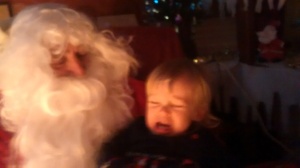
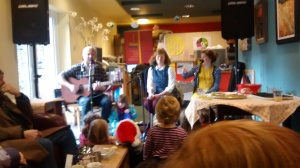























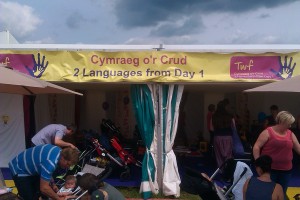









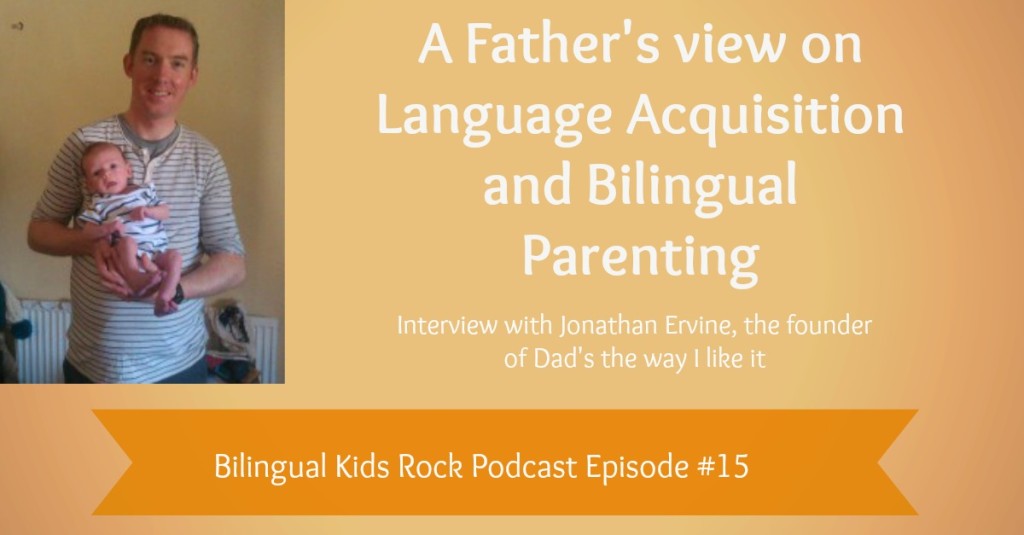

















































 Dad’s the Way I Like It: To what extent do you think attitudes to bilingualism in the United States have changed since you published Bilingualism is Better?
Dad’s the Way I Like It: To what extent do you think attitudes to bilingualism in the United States have changed since you published Bilingualism is Better?









